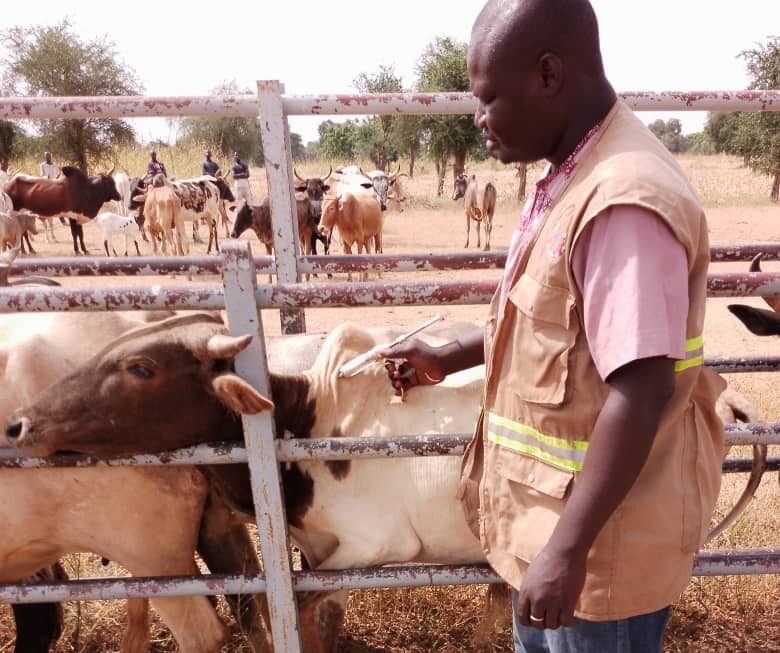USAID Yidgiri
Burkina Faso
Overview
The five-year Feed the Future-funded USAID Yidgiri Activity (2020-2025) was designed to strengthen market systems for the agriculture sector, improve household incomes, and enhance the nutritional status of women and children in Burkina Faso. By February 2025, the $24.9 million activity improved the performance and resilience of these market systems by establishing profitable linkages between agricultural producers and buyers and facilitating access to local and regional markets, specifically in the cowpea, poultry, and small ruminant value chains.
Impact
- 76,426 farmers reached through USAID Yidgiri activities
- $44 million generated in annual sales of cowpeas, sheep, goats, poultry, and other nutritious food products
- $3.3 million leveraged in new private sector investment
- 66% increase in smallholder farmer incomes
- 93% of supported organizations saw improved performance

Aptly named Yidgiri, or “grow” in the Mòoré language, USAID Yidgiri was part of the second phase of the USAID Regional Resilience in the Sahel Enhanced (RISE) initiative, which supported vulnerable communities in Burkina Faso to effectively prepare for and manage recurrent crises and pursue sustainable pathways out of poverty. The Activity was implemented in the Centre-North, East, and Sahel regions of Burkina Faso by CNFA in consortium with the Association Nodde Nooto (A2N) and the Research and Action for Development Group (GRAD).
Approach
USAID Yidgiri strengthened the resilience of food market systems around cowpea, livestock, and poultry value chains by building individual and institutional capacities among producers and agricultural market actors in Burkina Faso through three focus objectives:
- Enhanced performance of commodity market systems by establishing profitable market linkages between producers and buyers, improving livestock market system structure and governance, and enhancing access to affordable financial products and services for market system actors, including farmers, producer organizations, and micro, small, and medium-sized enterprises (MSMEs).
- Increased utilization of quality inputs and services by supporting business clusters, organizing seasonal commodity fairs, facilitating partnerships between producer organizations and industrial and institutional buyers, and facilitating access to financial services. USAID Yidgiri also worked at the systems level to improve affordability and access to quality inputs, while educating farmers on the most efficient and effective use of available inputs and services for improved productivity in each of the three target value chains.
- Increased local consumption of nutritious, safe, and affordable foods by supporting producers, processors, and other market actors to increase supply and meet rising consumer demand, respond to consumer needs and preferences, and improve safety standards. USAID Yidgiri’s social marketing approach was complimented by social behavior change (SBC) interventions that increased consumer demand and raised nutritional awareness at the community and household levels. Special emphasis was placed on building the technical capacity of processors and traders to supply and market healthy products and increasing the incomes of producers to be able to afford them.
Partners
To implement USAID Yidgiri, Cultivating New Frontiers in Agriculture (CNFA) collaborated with both international and local partner organizations, including the Research and Action for Development Group (GRAD), Association Nodde Nooto (A2N), and Care International.





